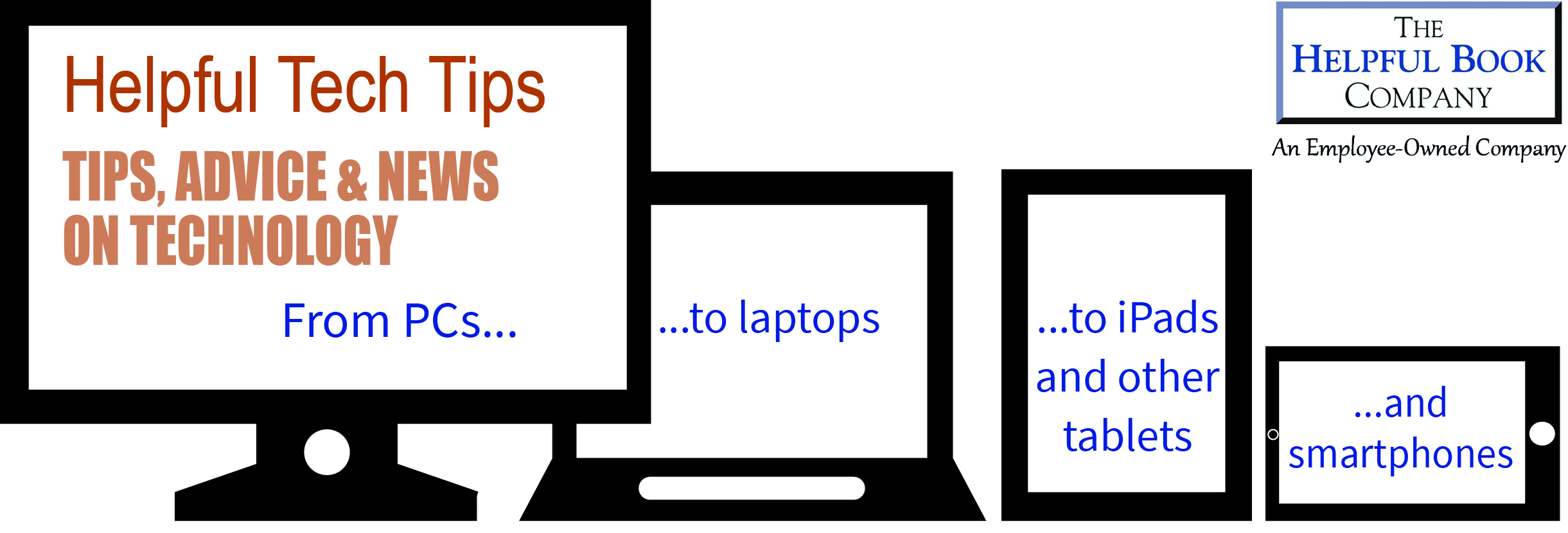528! That’s a lot.
Sorry… perhaps I should explain what I’m talking about.
I just sat down to write this email and wondered how many email newsletters I’ve written since I started. So I did a quick back of an envelope calculation and came up with 528, give or take.
And THAT set me thinking about how things have changed since the first ones I wrote, back in 2005.
Not just how things have changed, but how my advice has changed.
Surprisingly little in some cases. Even the very early email newsletters have tips that are still useful in them.
But in some cases my advice has changed completely.
I suppose the obvious example is if you asked me back then what to do if you wanted to use the internet, I’d have said “Get a computer”. Now I might suggest that… or you might want a tablet or smartphone.
But there are a few other examples, too. And I thought it’d be useful to point out where my advice has changed, in case you’re still sticking to my earlier suggestions.
The first one I’ll mention is to do with charging batteries. Back in the day laptop batteries were temperamental things. And the best way to make them last as long as possible was to always charge them to full, never part way, and always use them until they were empty before charging them again.
Otherwise they developed a sort of “charge level memory” and next time might only charge as far as you charged them this time.
But they’ve improved the way batteries work now, and you don’t need to worry about this.
In fact on smartphone and tablet batteries, to get the best lifespan a lot of manufacturers recommend not running it right down – instead charge it when it gets down to 30% or so. And if you really want to make it last as long as possible before the battery needs replacing, instead of charging it to 100%, charge it to 70% to 80%.
Don’t worry if it’s not always practical. You won’t suddenly destroy your battery by charging it to 100%. But you also don’t need to worry if you want to charge it again when it’s at 30%… or want to unplug it from the charge when it’s at 70%.
The second one is closing apps on phones and tablets. When they first came out it was a really good idea to properly close all apps when you finished using them, to save battery. Nowadays the systems that run the devices are much cleverer and if you finish with an app and just switch to another one or go back to the home screen, it’ll automatically stop that app from using any noticeable amount of battery. And having it still there in the background will actually save battery if you start it again later on.
I must admit, though, I still have the habit of closing apps when I finish with them. I do it without even meaning to now!
The third example is on PCs – desktops or laptops. I used to suggest that if you were ever having problems, make sure you turn your PC off and turn it on again. Not just restart, I’d stress, because that only does a quick restart. Turning it off properly and then on again does a more complete refresh.
Except with Windows 10, they changed that. They changed the “proper” turn off and on again to speed it up and made the restart more thorough.
So now if you’re having any problems with your PC, it’s best to use the restart option, rather than turning it off and on again (assuming you’re on Window 10s that is).
What about problems with tablets?
Speaking of problems with devices, we’ve just finished updating a pair of books called Tablet Help is at Hand. These books go through all the common problems people have using their tablets – what goes wrong, or makes it go slower and slower… and what to do to sort it out, in nice simple steps.
I first wrote these books a while ago, when tablets first became popular, but since then tablets have changed (and people have found more problems with them!) so the books needed updating for the latest versions.
You can read a bit more about them here.
